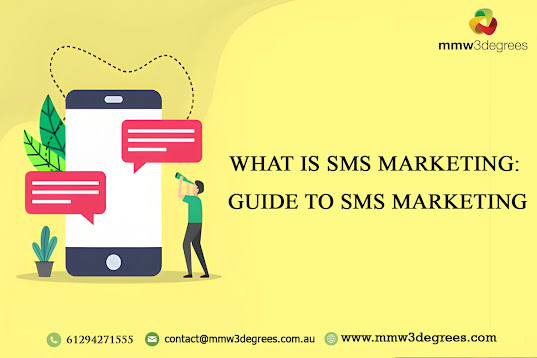What is SMS Marketing: Guide to SMS Marketing
In the ever-evolving landscape of digital marketing, SMS marketing stands out as a powerful and direct way to connect with your audience. Short Message Service, or SMS, has become an integral part of marketing strategies, offering businesses a unique avenue to engage customers. In this comprehensive guide, we'll explore what SMS marketing is, effective SMS marketing strategies, the nuances of Australian SMS etiquette, and how it benefits both e-commerce and local businesses.
Understanding SMS Marketing
At its core, SMS marketing involves sending promotional messages directly to a user's mobile phone. This direct line of communication provides businesses with a personalised way to reach their audience instantly. Unlike other forms of digital marketing, SMS has an impressive open rate, making it a valuable tool for conveying time-sensitive information.
Key Components of SMS Marketing Strategies
Developing effective SMS marketing strategies requires a thoughtful approach. Begin by identifying your target audience and crafting messages that resonate with them. Incorporate exclusive offers, discounts, or time-limited promotions to create a sense of urgency. To enhance engagement, consider using multimedia elements like images or GIFs that capture attention within the limited character space.
Australian SMS Etiquette: Building Trust with Your Audience
Respecting Australian SMS etiquette is paramount for successful SMS marketing campaigns. Australians value their privacy, so obtaining explicit consent before sending promotional messages is crucial. Ensure that recipients can easily opt out if they choose, demonstrating transparency and respect for their preferences. By adhering to these principles, businesses can build trust and maintain positive relationships with their audience.
SMS Marketing for E-Commerce: Boosting Sales and Customer Loyalty
For e-commerce businesses, SMS marketing is a game-changer. Send order confirmations, shipping updates, and exclusive offers directly to your customers' phones. Utilise targeted messages based on purchase history to recommend products, creating a personalised shopping experience. Implementing SMS marketing in e-commerce not only drives sales but also fosters customer loyalty through timely and relevant communication.
SMS Marketing for Local Businesses: Connecting with the Community
Local businesses can leverage SMS marketing to strengthen their connection with the community. Announce promotions, events, or new product launches to keep customers informed. Consider running location-based campaigns to target specific areas and drive foot traffic to your store. By embracing SMS marketing, local businesses can stay top-of-mind and build lasting relationships with their clientele.
Best Practices for Successful SMS Marketing
1. Clear Call-to-Action (CTA):
Craft messages with a clear and compelling call-to-action, guiding recipients on the desired next steps.
2. Timing is Key:
Respect your audience's time and send messages at optimal times to maximise engagement without causing inconvenience.
3. Segmentation:
Divide your audience based on demographics, preferences, or purchase history to send targeted and relevant messages.
4. Mobile-Friendly Content:
Ensure that your messages are easily readable on mobile devices, optimising the user experience.
5. Compliance with Regulations:
Stay informed about SMS marketing regulations to avoid legal issues and maintain a positive brand image.
In conclusion, SMS marketing is a dynamic tool that offers businesses a direct and impactful way to engage with their audience. By understanding and implementing effective strategies, respecting Australian SMS etiquette, and tailoring campaigns for specific business types, businesses can unlock the full potential of SMS marketing in the digital age. As you embark on your SMS marketing journey, remember to stay authentic, be customer-centric, and continually refine your approach based on data and feedback.




Comments
Post a Comment